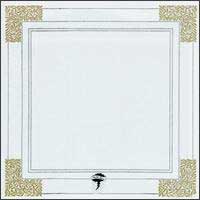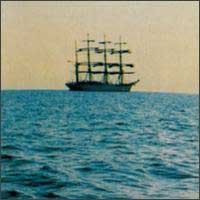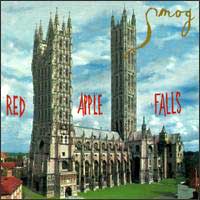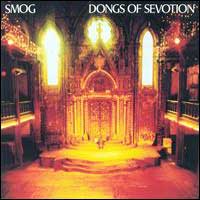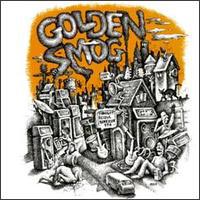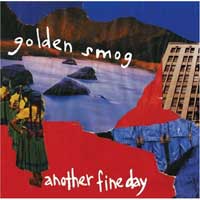Mit stoischer Bariton-Stimme und kaum viel mehr sprechsingt sich das 1-Mann Unternehmen Smog hier durch 10 Songs und 50 Minuten Musik. Daneben steht die recht virtuos gespielte Akustikgitarre, die so direkt und klar tönt, als säße Smog Bill Callahan im gleichen Raum mit dem Hörer. Mal sägt eine Violine kurz durch den Song, kurz tupft ein Piano vorbei und einigen Songs verpasst Dirty Three Drummer Jim White eine Dynamik, die man fast Rock nennen möchte.
Aufgenommen wurde das Album in Willie Nelson’s Pedernales Studio, das diesen klaren, erdigen Sound wahrscheinlich eingebaut hat. Und auf Callahan, der mittlerweile in Austin, Texas, lebt, scheint die texanische Storyteller-Tradition auch schon abgefärbt zu haben. Nicht das er das nicht auch schon vorher konnte, aber diese tragikomischen Geschichten hier haben eine Altersweisheit und eine Schwere, die fast an das erste American Album von Johnny Cash erinnern. Oder den frühen Leonard Cohen am Lagerfeuer.
(Glitterhouse)
Smog's Bill Callahan goes back to the root on A River Ain't Too Much to Love, his first full-length offering in two years. While it's true that his name is nearly synonymous with lo-fi, in recent years Callahan has experimented with different -- albeit simple -- production techniques such as on Dongs of Sevotion and Rain on Lens. Supper, issued in 2003, was more direct, both sonically and personally, and that tack is followed here, though the framework is even sparser. On this, his 12th album, Callahan journeyed south from Chicago to Willie Nelson's Pedernales recording studio in Spicewood, TX. Accompanied by the Dirty Three's Jim White once more holding down the drum chair, and Connie Lovatt on bass and backing vocals, Callahan evokes the ethos and poetry of spooky American folk and country music without ever actually playing them in his own tomes, using mainly waltzes to frame them. Americana this ain't. Callahan has the ability to write first-person narrative songs that cannily juxtapose an evocative physcal landscape that metaphorically refernces deep emotional states; he uses it to great effect here. The skeletal "Say Valley Maker" equates the loss of and longing for love with a river's ability to both fertilize and strip bare the floor of a valley. Callahan's acoustic guitar plays a pair of repetitive figures, graced by an unidentified shimmering sound just above the threshold of silence, graced by White's restrained, rudimentary beat. "Rock Bottom Riser" is a song of resurrection, and again, it's a waltz. In the first verse, a nylon-stringed guitar hypnotically plays the changes in plectrum style, as White uses brushes to shift time while underscoring it, making the tune seem to float. The singer speaks with gratitude to the memory of an absent lover. As Joanna Newsom's piano underscores and fills the melody, Callahan's character finds a transformed sense of self in rising from his loss. It's slippery, lilting pace and restrained vocal create a tension that frames the tune's poignancy. The true nod to roots tradition here is also the album's centerpiece. His version of "In the Pines" is reverent without feeling staid, hampered by its place in history. A delicate, reedy, meandering tempo adorned in a simple guitar line and drums unpacks the melody, and Callahan's delivery is the seed of memory as it comes up from the ether, urging the singer to tell the whole story while keeping his composure. Travis Weller's edgy fiddle exposes the crack in the tale, however, and the grain of Callahan's voice walks the line between reverie and regret. A River Ain't Too Much to Love is a subdued, plaintive collection of songs that accompany silence; they encourage reflection without guile and unveil themselves without a hint of studied artifice.
(by Thom Jurek, All Music Guide)
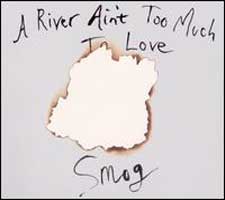
 Plattentipp
Plattentipp 

